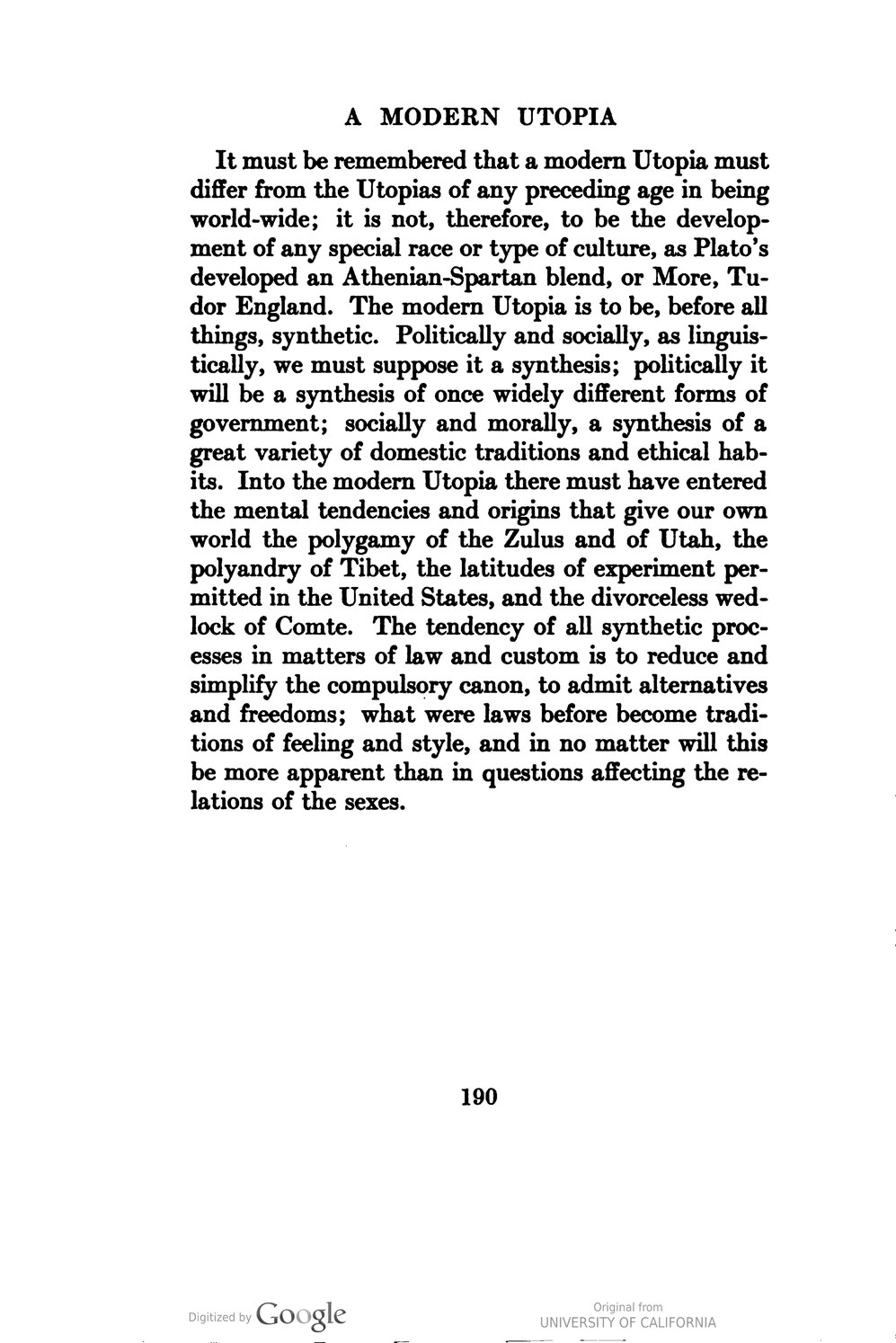A MODERN UTOPIA
It must be remembered that a modern Utopia must differ from the Utopias of any preceding age in being world-wide; it is not, therefore, to be the development of any special race or type of culture, as Plato's developed an Athenian-Spartan blend, or More, Tudor England. The modern Utopia is to be, before all things, synthetic. Politically and socially, as linguistically, we must suppose it a synthesis; politically it will be a synthesis of once widely different forms of government; socially and morally, a synthesis of a great variety of domestic traditions and ethical habits. Into the modern Utopia there must have entered the mental tendencies and origins that give our own world the polygamy of the Zulus and of Utah, the polyandry of Tibet, the latitudes of experiment permitted in the United States, and the divorceless wedlock of Comte. The tendency of all synthetic processes in matters of law and custom is to reduce and simplify the compulsory canon, to admit alternatives and freedoms; what were laws before become traditions of feeling and style, and in no matter will this be more apparent than in questions affecting the relations of the sexes.
190
